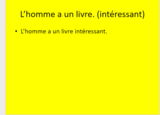
This is a Power Point to review regular adjective placement in French.
- Subject:
- French
- Material Type:
- Activity/Lab
- Author:
- Chelsea Rowe
- Date Added:
- 03/30/2021

This is a Power Point to review regular adjective placement in French.
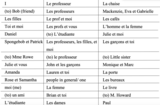
This activity reviews French subject pronouns and how to replace nouns with subject pronouns. The students will cut out of the subjects from page 2. They will glue them onto page 1 under the correct subject pronouns that would replace the noun.

Fun Quiz over French facts: history, food, fashion, geography, etc.

French I
Greetings and Partings
Greetings between friends and relatives vary from region to region in France. Students watch 6 videos (transcriptions are available)
-A formal greeting
-Greeting a close friend
-Visiting a close friend
-Did you have a good trip?
-Did you sleep well?
-So, goodbye

This is an activity to help students find the imperfect stem for irregular verbs in French.

Black M, a French hip-hop artist, was told he should not perform at a concert based on his race. He responded on Twitter with a comprehensive song "clapping back" at the politician and others who think being black makes him any less French. This lesson focuses on identity and uses first-year French constructions to allow students to talk about themselves while learning about French identities. The video for the song includes references to many aspects of French and francophone culture, which are explored briefly in the lesson with room to explore independently.
Lest we think this is an issue unique to France, decades ago, Marian Anderson was also told she could not perform based on her being black. She defied the odds and sang on the steps of the Lincoln memorial, inspiring Martin Luther King, Jr, among others. We look at this performance and a portrait of Anderson from the Virginia Museum of Fine Arts and students have a chance to discuss how they have overcome odds.

Use this resource to help introduce common letter patterns and their pronunciation in French. Uses the phonetic alphabet but can be changed to adapt for students that are not familiar with it.

Homework or classwork review of numbers 0-60.
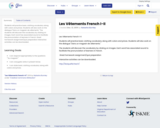
Students will practice basic clothing vocabulary along with colors and prices. Students will also work on the dialogue "Dans un magasin de vêtements."
The students will discover the vocabulary by clicking on images. Each word has associated sound to facilitate the pronunciation of learners in French.
Great homework assignment/quiz preparation
Interactive activities can be downloaded.
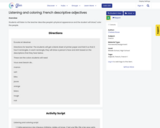
Students will listen to the teacher describe people's phyisical appearance and the student will draw/ color the people.

Students work with a partner to go on a pretend online shopping spree. They use clothing and accessory words, colors, descriptive adjectives, and BAGS adjectives to talk through outfits they’d consider buying.
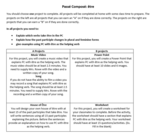
This project focuses on the passé composé with être ( the DR MRS VANDERTRAMPP verbs) Students will choose a project option and use the rubrics as guidelines for their project.
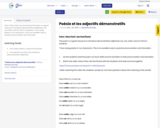
Poem “Dans Paris” par Paul Éluard
The poem is a great resource to introduce demonstrative adjectives (ce, cet, cette, ces) for French I students.
*I love using poetry in my classrooms. This is an excellent way to practice pronunciation and intonation.

Students use negative expressions to translate sentences from English to French.

Students review a few main rules for when and how to use the subjunctive, review a handful of common expressions that trigger subjunctive usage, and then work in partner groups to translate and diagram 12 sentences.
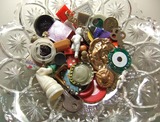
Notes and practice translations with key. French Direct Object Pronouns. Present, passe compose, futur proche, negation.

Notes and practice translations with key. French Indirect Object Pronouns. Present, passe compose, futur proche, negation.
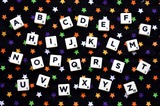
Practice for level 1 students with the alphabet in French. Students will watch a video and complete activities working with cognates.

Students are working to practice numbers 1-10 by simulating exchanging phone numbers.

Quiz over French direct and indirect object pronouns in both present and passé composé, with a little negation.